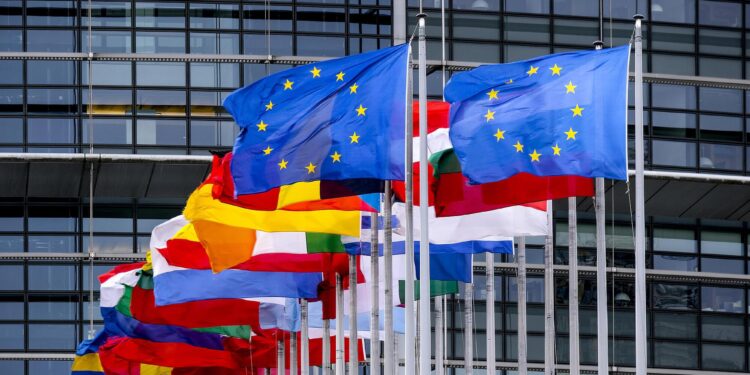The European Union has stepped forward to bolster Moldova’s cybersecurity defenses amid escalating Russian cyberattacks targeting the Eastern European nation. As tensions continue to simmer in the region, EU officials announced new measures aimed at protecting Moldova’s critical infrastructure and digital networks from persistent malicious intrusions. This move underscores Brussels’ commitment to safeguarding its neighbors against hybrid threats and reinforces the bloc’s strategic support for Moldova’s sovereignty in the face of growing cyber aggression.
EU Strengthens Cybersecurity Measures to Protect Moldova from Russian Threats
The European Union has ramped up its efforts to bolster Moldova’s digital defenses amid escalating cyber aggression from Russian threat actors. This initiative is a strategic move to safeguard Moldova’s critical infrastructures, government networks, and civilian digital platforms from increasingly sophisticated hacking campaigns. By deploying advanced cybersecurity tools and sharing intelligence, the EU aims to create a layered defense system that reduces vulnerability and enhances rapid threat detection and response capabilities.
Key components of this strengthened cybersecurity framework include:
- Provision of cutting-edge threat intelligence and early warning systems.
- Training programs for Moldovan cybersecurity professionals and government officials.
- Support in updating national cybersecurity legislation to align with EU standards.
- Deployment of joint cyber incident response teams for faster containment and mitigation.
| Support Area | EU Contribution | Impact |
|---|---|---|
| Threat Intelligence | Real-time data feeds & analytics | Enhanced situational awareness |
| Capacity Building | Workshops & cyber drills | Stronger local expertise |
| Incident Response | Rapid deployment teams | Reduced damage from attacks |
| Regulatory Support | Legislative advisory | Improved cybersecurity governance |
Inside the Rising Wave of Russian Cyber Attacks Targeting Eastern Europe
In recent months, Eastern Europe has witnessed a sharp escalation in cyber offensives attributed to Russian state-backed groups. Moldova, a key strategic partner of the EU, has found itself at the frontline of these coordinated attempts aimed at destabilizing its political and economic infrastructure. The attacks have employed sophisticated malware, phishing campaigns, and denial-of-service operations targeting governmental institutions, media outlets, and critical energy sectors. Experts suggest that these operations are part of a broader strategy to exert influence and test the resilience of EU neighbors amid heightened geopolitical tensions.
The EU’s response has been swift and multifaceted:
- Deployment of specialized cybersecurity teams to bolster Moldova’s defenses
- Launching joint intelligence-sharing initiatives across member states and Eastern European partners
- Allocating emergency funding dedicated to infrastructure hardening and public awareness campaigns
- Enhancing legal frameworks to penalize cybercriminals and deter further incursions
| Type of Attack | Primary Targets | Countermeasures |
|---|---|---|
| Phishing & Social Engineering | Government Officials, Journalists | Awareness Training, Email Filtering |
| Malware Infiltration | Energy Sector, Financial Institutions | Network Segmentation, Patch Management |
| DDoS Attacks | Public Services Websites | Traffic Filtering, Load Balancing |
Experts Call for Enhanced EU-Moldova Cooperation and Strategic Cyber Defense Investments
In recent months, tensions between Moldova and Russia have escalated in the digital domain, with multiple attempts of cyber intrusions targeting Moldovan government networks and critical infrastructure. Experts emphasize the urgent need for a collaborative European approach, underscoring that Moldova’s cybersecurity resilience is pivotal not only for national security but also for regional stability in Eastern Europe. The European Union’s increasing engagement reflects a strategic move to bolster defenses through knowledge sharing, joint exercises, and significant funding aimed at modernizing Moldova’s cyber capabilities.
Key recommendations from cybersecurity analysts include:
- Expanding EU technical and intelligence support to Moldovan agencies.
- Investing in advanced threat detection systems tailored to counter state-sponsored attacks.
- Enhancing public-private partnerships to secure critical infrastructure such as energy and telecommunications.
- Developing cross-border incident response mechanisms to enable rapid containment of cyber threats.
| Priority Areas | Proposed EU Support |
|---|---|
| Network Security | Funding for encryption and firewall upgrades |
| Capacity Building | Training programs and workshops for Moldovan officials |
| Information Sharing | Real-time threat intelligence platforms |
| Infrastructure Protection | Secure architecture development for energy grids |
The Way Forward
As tensions in Eastern Europe persist, the European Union’s move to bolster Moldova’s cybersecurity defenses marks a significant step in countering Russian hybrid aggression. This support underscores the EU’s commitment to safeguarding the sovereignty and digital infrastructure of its neighbors amid increasing cyber threats. Monitoring developments closely, policymakers emphasize that continued cooperation will be essential to maintaining stability and resilience in the region.
















